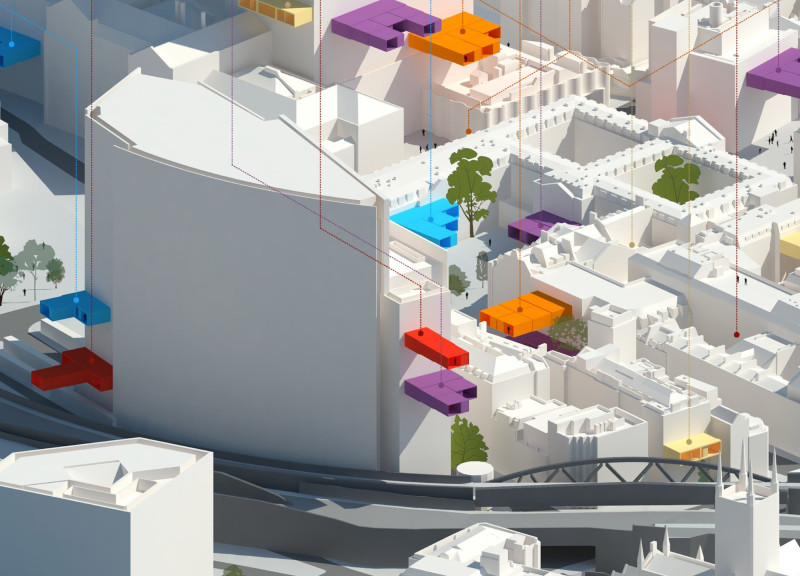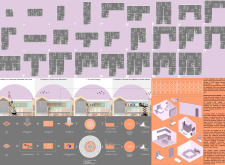5 key facts about this project
"Restock Reconnect Reside" presents a fresh approach to urban living by focusing on modular design and social interaction. Set within a dynamic urban environment, the project reimagines how people can live together in a community. Its primary aim is to create adaptable living spaces that foster connections among residents, reflecting the inclusivity of modern life.
Modularity and Flexibility
The design incorporates a modular system that uses prefabricated steel frames. These frames provide both strength and adaptability. With a threefold expansion system in place, users have the option to choose from 26 different dwelling typologies. This flexibility allows for personalization, letting residents tailor their living spaces according to their needs and preferences.
Integration with Existing Urban Fabric
A key feature of the project is its ability to incorporate existing structures. The living units can be connected to host buildings, reducing the need for new land development. This strategy not only makes efficient use of resources but also enhances the relationship between new and old constructions. By utilizing what is already present, the design minimizes environmental impact and promotes sustainability.
Affordability and Time-Based Ownership
The project also introduces a time-based ownership model, aligning costs with how long residents occupy their homes. This structure provides an affordable option for living arrangements that can adjust as life circumstances change. By offering flexibility, the design aims to support a diverse range of users, making urban living more accessible.
Central to the design are communal spaces that encourage social interaction among residents. These areas act as gathering spots, promoting a sense of belonging and community within the larger urban landscape. By facilitating connections, the project embodies the spirit of collective living in a contemporary city setting.






















































